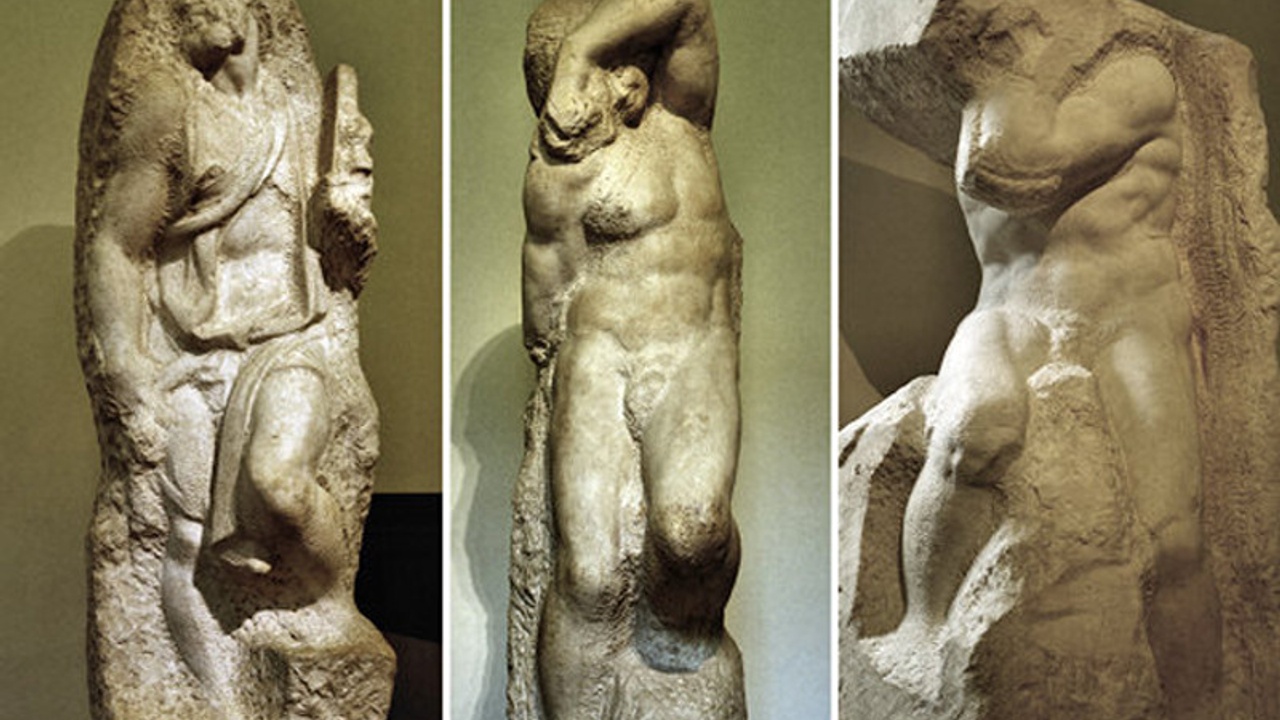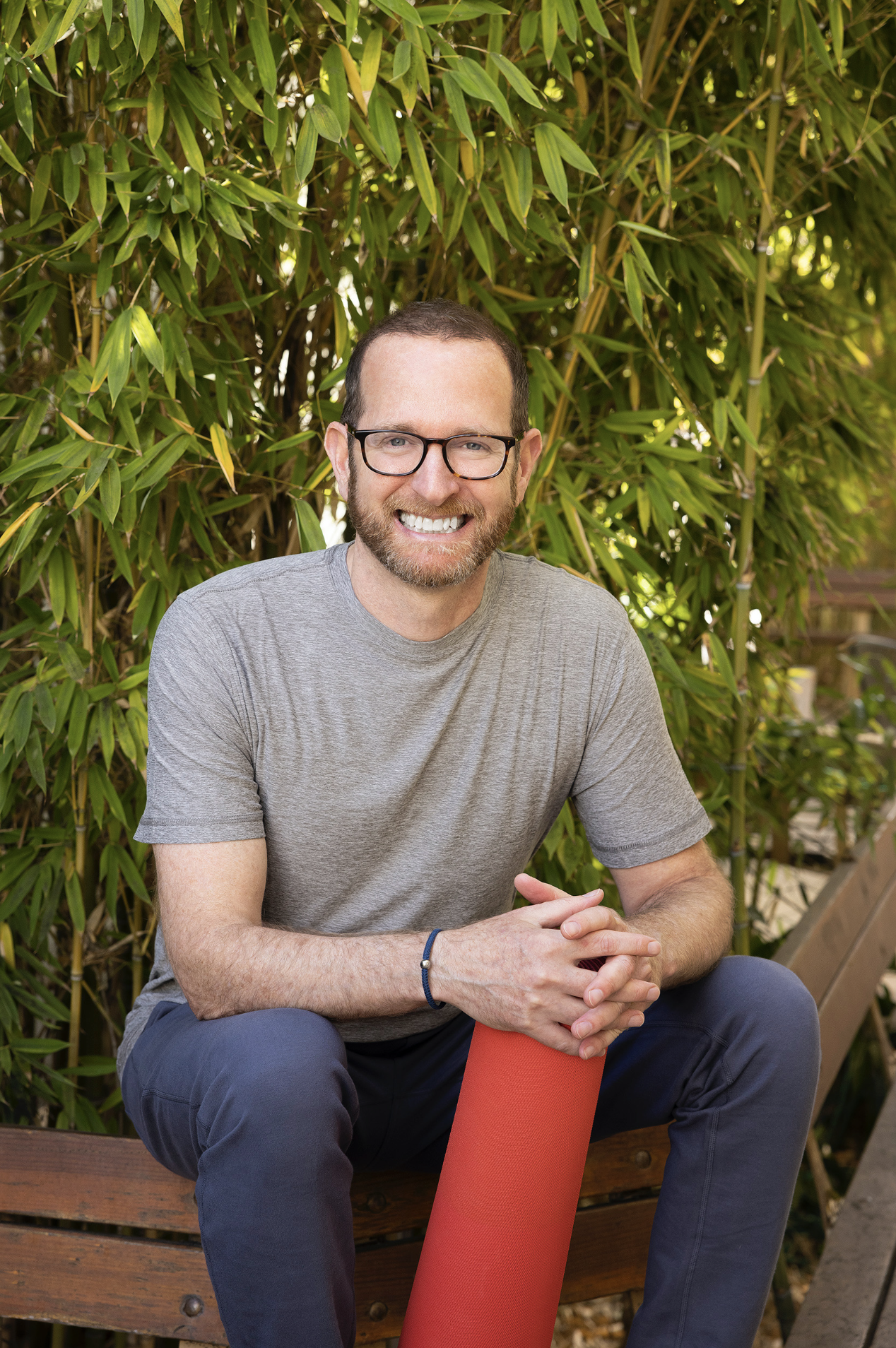Embracing Difference, Not Conformity: What Does Accessible Yoga Really Mean?

by Jivana Heyman
I’m always curious about the ways that the term “accessible yoga” is understood and translated by the yoga community. What I’ve noticed recently is that some yoga teachers talk about making yoga accessible to their students in an effort to help them fit into their yoga classes—to help them conform.
Some teachers only offer different variations of a practice when a student can’t do the “full expression” of a pose. In this case, the adapted practice is offered as some kind of consolation prize.
That’s not exactly what I had in mind when I started teaching accessible yoga. My goal is, and has always been, to make the tools of yoga accessible to people in order to support them in personalizing the practice, so that they can find an inner sanctuary.
As the world opens up again, and we move back to a traditional studio model, we seem to be slipping back into our old ways, with conformity being the name of the game. While all yoga teachers need to know how to adapt the practice so that anybody can join their classes, that’s really just the beginning.
The ultimate goal is to celebrate our students' differences. This means actually celebrating the things that they may be ashamed of, and the things they are hiding from the world. Can you imagine what it would be like to have your yoga teacher celebrate your differences? It would offer validation, a sense of being seen, and a feeling of belonging. It would lay the groundwork for transformational acts of self-acceptance and self-love.
The most fundamental teaching of yoga is that we are all full and complete spiritual beings. Yoga begins with this positive assertion. You are already full. This assumption of our completeness is described in the Yoga Sutras of Patanjali.
First, Patanjali defines yoga as the effort to calm the mind. Then, he explains in sutra 1.3, “The Self abides in its own true nature.” In other words, when the mind is calm, we automatically experience the truth of our spiritual essence. When the storm passes, we see that we’re still standing.
In 1.4 he continues on to explain that when we’re not abiding in our true nature, we’re trapped in our thoughts. He says, “At other times, the Self assumes the form of the thoughts.” What he’s describing is our fundamental human problem: We've forgotten the truth of our spiritual essence, and instead, identified with the thoughts in the mind. We've gotten lost and become disconnected from that place within our own heart.
The yoga practices are all designed to lead us back home to ourselves. They’re not about giving us something new, or making us into something else. They’re not about healing us, fixing us, or fitting us into a mold. But rather, peeling away the layers that are blocking our experience of that truth. And to me, that's a very different thing.
I have a background in art, and this concept always reminds me of making a sculpture. There are really two different traditional approaches to sculpture. In additive sculpture you build a sculpture from nothing. You use something like clay and you build it up. You keep adding to it until it creates the image you have in your mind.
Another technique, called subtractive sculpture, is about carving and taking away. Usually the medium is stone or wood, and you actually take away that which is blocking the truth of the form. Great examples of this are Michelangelo’s famous “non-finito” (unfinished) sculptures. These are giant male figures that seem to be coming out of the stone. It looks like they’re emerging from the solid rock and transforming into something organic and alive.
In a famous quote from Michelangelo, he explained, “I saw the angel in the marble and carved until I set him free.” That’s the image that comes to mind when I think about accessible yoga. As teachers, we are supporting people as they reconnect with themselves—as they free themselves from the grasp of a culture that is always telling them they are not enough. We help them to discover and embrace what's already there.
Interested in learning more? ⤵️
Join our upcoming FREE mini-workshops!
3-Part Mini-Workshop Series
How Do You Plan A Yoga Class?
Thursday, January 12, 2023 | 10:30-11:30am PST
Join Mukunda Marc Morozumi and Jivana Heyman for discussion and short practices with tips for how to plan a yoga class.
Infusing Yoga Philosophy Into Your Teaching
Thursday, February 2, 2023 | 11am-12pm PST
Join Anjali & Jivana as they share their experience and tips for infusing yoga philosophy into your teaching and practice.
Are You The Yoga Teacher For Everyone?
ON DEMAND NOW
Jivana Heyman and M Camellia share their thoughts on a big but common question - is it possible to be the yoga teacher for everyone?
Register once to access all three free sessions live or via recording!
Learn More
3 Ways to Adapt Sun Salutation to Make It Truly Accessible
ON DEMAND NOW
In this session, Jivana Heyman will offer a variety of techniques to expand your toolkit and help make your classes accessible, welcoming, and effective.
Learn More
About the Author

Jivana Heyman, C-IAYT, E-RYT500, is the founder and director of the Accessible Yoga Association, an international non-profit organization dedicated to increasing access to the yoga teachings. He’s the author of Accessible Yoga: Poses and Practices for Every Body (Shambhala Publications), as well as the forthcoming book, Yoga Revolution: Building a Practice of Courage & Compassion (Shambhala Publications, Nov. 2021).
Jivana has specialized in teaching yoga to people with disabilities with an emphasis on community building and social engagement. Out of this work, the nonprofit Accessible Yoga Association was created to support education, training, and advocacy with the mission of shifting the public perception of yoga. Accessible Yoga offers Conferences, Community Forums, a Podcast, and a popular Ambassador program.
Jivana coined the phrase, “Accessible Yoga,” over ten years ago, and it has now become the standard appellation for a large cross section of the immense yoga world. He brought the Accessible Yoga community together for the first time in 2015 for the Accessible Yoga Conference, which has gone on to become a focal point for this movement.
Jivana is also the creator of the Accessible Yoga Training and the co-founder of the online Accessible Yoga School with Amber Karnes, which is a platform for continued education for yoga teachers in the field of equity and accessibility. They also created the Accessible Yoga Podcast in 2020.
Over the past 25 years, Jivana has led countless yoga teacher training programs around the world, and dedicates his time to supporting yoga teachers who are working to serve communities that are under-represented in traditional yoga spaces.

